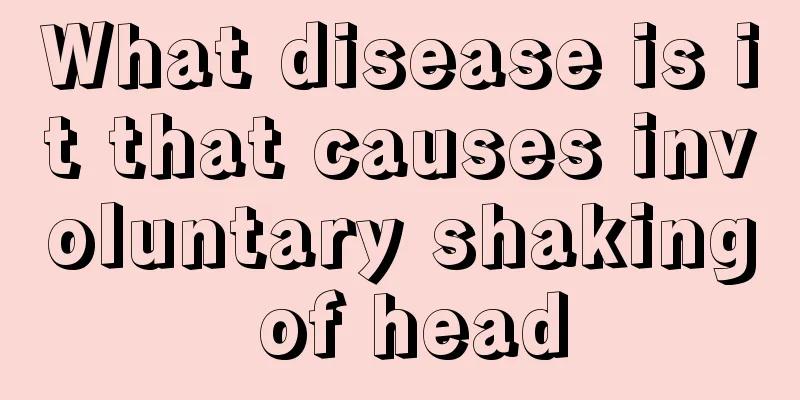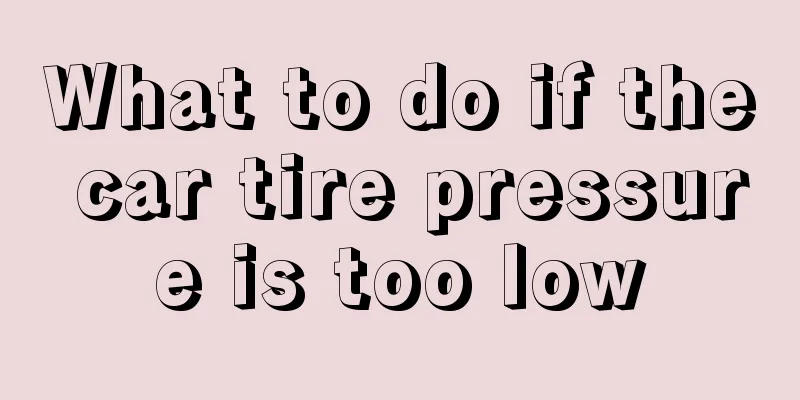What disease is it that causes involuntary shaking of head

|
Shaking your head is a very simple action that is controllable and is often used when expressing denial or feeling helpless. However, for some people, shaking their heads is an unconscious action that is completely out of their control. When this happens, the disease of involuntary head shaking will naturally occur. There are many reasons that lead to involuntary shaking of the head, the most common of which is tremor. The situation is rather complicated and needs to be clarified as soon as possible. The so-called involuntary head shaking, professionally known as "tremor", is an involuntary, rhythmic oscillatory movement of varying degrees, caused by alternating or irregular synchronous contraction of muscles innervated by opposite nerves. It typically affects the hands, head and face, and the vocal cords, trunk or lower limbs may also be affected. Depending on the situation in which it occurs, it can be divided into rest tremor, postural tremor and intention tremor. The most common tremors seen clinically include Parkinson's disease rest tremor, postural and action tremor, intention tremor (also known as ataxic tremor), complex tremor, hysterical tremor, etc. 1. Resting tremor: seen in basal ganglia lesions, mainly Parkinson's disease and Parkinson's syndrome, and the cause is neurodegenerative lesions that often occur in the elderly. 2. Postural and action tremors: ① Enhanced physiological tremor. This type of tremor is just an enlargement of normal or physiological tremor, which can be induced by alcohol, coffee, tea, cola, etc. ② Essential tremor: about one-third of patients have a family history, and most of them develop the disease after the age of 20. ③Ethanol withdrawal tremor. 3. Intention tremor: cerebellar tremor, essential orthostatic tremor, chin tremor, etc. 4. Psychogenic tremor 5. Drug-induced tremor There are other types of tremors. It should be said that people of different ages may have different tremors, but the degenerative neurological diseases that occur with age are definitely more common in the elderly. Therefore, common tremors in clinical practice, including head tremors, are more common in the elderly. When tremors are severe, they not only affect the body's functions, but also cause patients to suffer from mental and psychological disorders such as anxiety and depression, and even affect their social abilities. |
<<: When does fetal bone development occur?
>>: What is the disease of shaking head
Recommend
Keloid symptoms
With the continuous changes in living environment...
Can I extract a tooth if it hurts? Will it kill the pulp?
If you do not pay attention to tooth care on a da...
Symptoms before death from advanced brain cancer
What are the symptoms of advanced brain cancer be...
What to do if you want your hair to grow faster
Many people now suffer from hair loss, and their ...
How is earwax formed
Ears are our very important auditory organs, so p...
The ten major disadvantages of hot yoga
Yoga is actually a very good exercise. Nowadays, ...
What is the use of physiological seawater nasal spray
There are many diseases in clinical practice that...
The dangers of skin cancer in men
Skin cancer is a relatively rare dermatological d...
How to choose a refrigerator
Refrigerators are common household appliances. Th...
What are the late stage symptoms of nasopharyngeal carcinoma and how to treat it
What are the late symptoms of nasopharyngeal carc...
Is colon cancer inherited from the father's side?
With the development of society, the improvement ...
What to do if stomach hurts after taking medicine
When you go to the hospital or clinic for medical...
Can nasopharyngeal cancer be passed down to future generations?
Can nasopharyngeal cancer be passed down to futur...
Pharyngeal tumor symptoms
In recent years, the incidence of cancer has been...
Reasonable diet can prevent lung cancer
A proper diet can prevent lung cancer. Many peopl...









